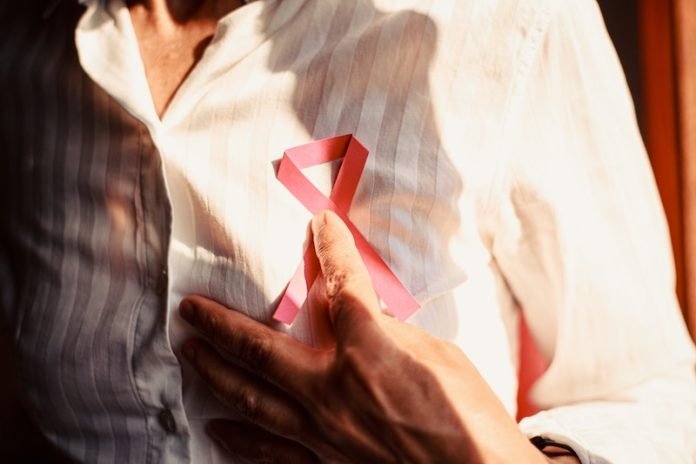
Dr. Zachary Schug, a researcher at the Ellen and Ronald Caplan Cancer Center, has made a significant breakthrough in the fight against a tough type of breast cancer.
He’s shared his findings in a scientific paper, but let’s break it down into simpler terms. This could mean new hope for many patients who are dealing with this aggressive form of cancer.
Understanding Triple-Negative Breast Cancer (TNBC)
Triple-Negative Breast Cancer, or TNBC for short, is a kind of breast cancer that’s very hard to treat. Imagine cancer cells as having locks, and the treatments as keys.
In many breast cancers, we have the keys to these locks, but in TNBC, the locks are missing, making it hard to find a key that fits, i.e., a treatment that works.
TNBC is also known for being more aggressive, growing faster, and resisting treatment more than other types of breast cancer, leaving patients with fewer options and, unfortunately, worse outcomes.
Dr. Schug’s Discovery: Silencing a Troublesome Gene
In his research, Dr. Schug focused on a gene called ACSS2. Think of genes as instruction manuals for cells. The ACSS2 gene provides instructions that help cancer cells grow and spread by utilizing a nutrient called acetate.
Dr. Schug and his team found a way to “silence” this gene, stopping it from giving instructions to the cancer cells. They used advanced techniques, like CRISPR-Cas9 gene editing and a compound known as VY-3-135, to deactivate the ACSS2 gene effectively.
This silencing did two important things. Firstly, it hindered the cancer cells’ ability to use acetate and grow. Secondly, it caused the immune system—the body’s defense mechanism—to recognize and attack the cancer cells.
The area around the tumor became saturated with unused acetate, signaling to the immune system that something was wrong, guiding it directly to the cancer.
Implications: Better Outcomes for Patients
Dr. Schug’s approach has proven very effective, even eliminating the cancer entirely in some experiments.
This discovery is like finding a new kind of key, one that makes the body’s own defense system attack the cancer. And the body remembers how to use this key, meaning it could potentially stop the cancer from coming back.
Even more exciting is the possibility of combining this new method with existing treatments. Initial tests have shown that using ACSS2 inhibitors (the substances that silence the troublesome gene) alongside standard treatments enhances the effectiveness against TNBC.
In simpler words, this could mean improved treatment options and better survival chances for those suffering from TNBC, especially when the usual treatments aren’t enough. It’s like having an extra weapon in the battle against this formidable foe.
Conclusion
In conclusion, Dr. Schug’s pioneering work sheds light on the possibilities of new, more effective treatments for TNBC.
His work is especially significant for those with limited options, and while more research is needed, his findings pave the way for potentially life-saving treatments in the future.
It’s an exciting step forward in our ongoing battle against breast cancer, bringing hope to many who need it the most.
If you care about cancer, please read studies about Fewer lymph node surgeries could help people with breast cancer and findings of Scientists find new treatment approach for breast cancer.
For more information about cancer, please see recent studies about sweeteners linked to increased cancer risk, and results showing new way to supercharge cancer-fighting T cells.
The research findings can be found in Nature Cancer.
Follow us on Twitter for more articles about this topic.
Copyright © 2023 Knowridge Science Report. All rights reserved.



